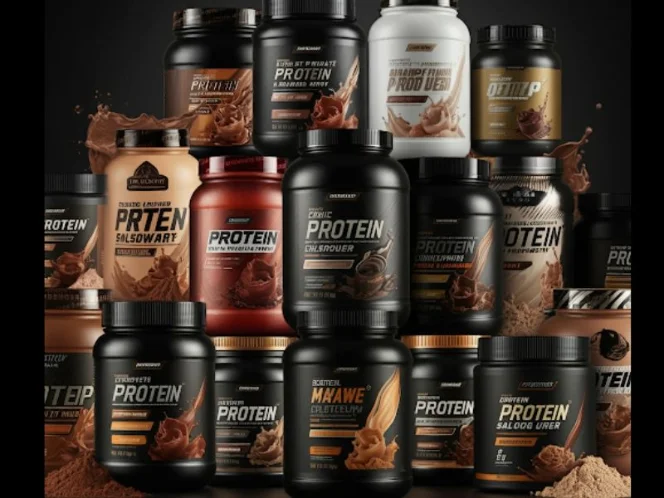Picture this: You’re standing in the supplement aisle, surrounded by a dizzying array of colorful bottles, each promising to unlock your peak potential. Boost energy! Build muscle! Enhance focus! It’s exciting, but also a bit overwhelming, right?
Decoding the Supplement Maze
The world of supplements is vast and often confusing. With countless products and bold claims, it’s easy to feel lost in a sea of information. But don’t worry, we’re here to guide you through the maze.

In recent years, supplements have skyrocketed in popularity. From fitness enthusiasts to health-conscious individuals, more and more people are turning to these products in hopes of achieving their wellness goals.
But what exactly are supplements? How do they work? Are they safe and effective? And most importantly, are they right for you?
Empowering You with Knowledge
In this comprehensive guide, we’ll break down the basics of supplements, providing you with the knowledge you need to make informed decisions about your health and fitness journey. We’ll explore the different types of supplements, their potential benefits and risks, and how to choose the right products for your individual needs.
By the end of this article, you’ll be equipped to navigate the supplement landscape with confidence, separating fact from fiction and making choices that support your overall well-being.
So, let’s dive in and demystify the world of supplements together!
Defining Supplements: What Exactly Are They?
Let’s clear the fog and shed light on what supplements truly are. It’s essential to establish a solid understanding before navigating the vast sea of products and promises.
Official Definition of Supplements: Beyond the Buzzwords
It’s easy to get swept away by marketing hype, but let’s ground ourselves in the official definition. According to the U.S. Food and Drug Administration (FDA), a dietary supplement is:
- A product taken by mouth that contains a “dietary ingredient” intended to supplement the diet.
- These dietary ingredients can include vitamins, minerals, herbs, amino acids, and other botanicals.
In essence, supplements are meant to be just that – supplements to your diet, not replacements for whole, nutritious foods. Think of them as the supporting cast, not the main stars of the show.
Common Forms of Supplements: A Rainbow of Choices
Supplements come in a variety of forms, each with its own advantages and considerations.
- Pills and Capsules: These are perhaps the most common form of supplements, offering a convenient and pre-measured dose of nutrients. They’re easy to swallow and transport, making them a popular choice for many.
- Powders: Protein powders, pre-workout formulas, and greens blends often come in powder form. They offer versatility, allowing you to mix them into shakes, smoothies, or even baked goods.
- Liquids: Some supplements, like liquid vitamins or herbal extracts, come in liquid form. They’re often easier to absorb for those with digestive issues.
- Other Forms: You might also encounter supplements in the form of gummies, chewables, or even topical creams.

The best form for you depends on your personal preferences, lifestyle, and the specific supplement you’re considering.
Distinction Between Supplements and Food: The Dynamic Duo
It’s crucial to remember that supplements are intended to supplement a healthy diet, not replace it. Think of them as the Robin to your Batman – a valuable sidekick, but not the main superhero.
- Whole foods provide a complex array of nutrients, fiber, and phytochemicals that supplements simply can’t replicate.
- A balanced diet rich in fruits, vegetables, whole grains, lean proteins, and healthy fats should always be your primary focus.
Supplements can help fill in nutritional gaps, support specific health goals, or address certain deficiencies, but they should never be viewed as a substitute for a wholesome, well-rounded diet.
Now that we’ve defined what supplements are and their role in relation to food, let’s explore the reasons why people turn to these products in the first place.
Why People Take Supplements: Unpacking the Motivations
Now that we’ve defined what supplements are, let’s dive into the “why.” What motivates people to incorporate these products into their daily routines? The reasons are as diverse as the supplements themselves, ranging from targeted health goals to simple convenience.
Filling Nutritional Gaps: Bridging the Dietary Divide
In an ideal world, we’d all get every single nutrient we need from a perfectly balanced diet. But reality often paints a different picture.
- Busy schedules, picky eating habits, or limited access to fresh produce can lead to nutritional gaps.
- Supplements can act as a safety net, ensuring you’re getting adequate amounts of essential vitamins, minerals, and other nutrients that your diet might be lacking.

For example, if you struggle to consume enough calcium-rich foods, a calcium supplement can help bridge the gap and support bone health. It’s like having a nutritional insurance policy!
Supporting Specific Health Goals: Tailored Support
Whether you’re aiming to shed a few pounds, build lean muscle, or enhance your athletic performance, supplements can offer targeted support.
- Protein powders can aid in muscle recovery and growth for those strength training.
- Pre-workout formulas can provide an energy boost and enhance focus during exercise.
- Certain herbal supplements like ginseng or ashwagandha may help manage stress and improve sleep quality.
It’s important to remember that supplements are supportive tools. They can enhance your efforts, but they won’t magically achieve your goals without a solid foundation of healthy habits.
Addressing Specific Health Conditions: Targeted Relief
Certain health conditions may benefit from specific supplements.
- Individuals with osteoporosis might take calcium and vitamin D supplements to support bone health.
- Those with digestive issues might find relief from probiotics or digestive enzymes.
- Always consult your healthcare provider before taking supplements for any health condition, as they can interact with medications or have unintended side effects.

Convenience and Lifestyle Factors: The Fast-Paced World
In today’s busy world, convenience often dictates our choices. Supplements can offer a quick and easy way to get certain nutrients or support health goals.
- If you’re always on the go, a protein shake can be a convenient meal replacement or post-workout snack.
- If you have dietary restrictions, certain supplements can help ensure you’re getting all the essential nutrients your body needs.
However, it’s important to remember that whole foods should still form the foundation of your diet whenever possible.
The “Just in Case” Mentality: Seeking Extra Protection
Some people take supplements as a form of insurance, hoping they’ll provide an added layer of protection against disease or aging.
- While certain supplements may offer preventative benefits, it’s important to rely on scientific evidence and consult with a healthcare professional before making any decisions.
- Remember, a healthy lifestyle, including a balanced diet and regular exercise, is the cornerstone of long-term health and well-being.
Understanding the various motivations behind supplement use can help you navigate the vast market and make informed choices that align with your personal health goals. In the next section, we’ll dive deeper into the different types of supplements available, helping you decipher the labels and make sense of the options.
Imagine supplements as a bustling marketplace, brimming with a dazzling array of options. From vitamins and minerals to protein powders and herbal extracts, the choices can feel endless. Let’s embark on a guided tour through this diverse landscape, exploring the main categories of supplements and their unique roles in supporting health and fitness goals.
Vitamins and Minerals: Essential Building Blocks
Vitamins and minerals are the unsung heroes of our bodies, playing crucial roles in countless functions.
- They support everything from energy production and immune function to bone health and cell repair.
- While a balanced diet should ideally provide all the vitamins and minerals you need, supplements can help fill in any gaps and ensure optimal levels.

Popular vitamin and mineral supplements include:
- Multivitamins: Provide a convenient way to get a broad spectrum of essential nutrients.
- Vitamin D: Crucial for bone health, immune function, and mood regulation.
- Calcium: Supports bone health and muscle function.
- Iron: Essential for red blood cell production and oxygen transport.
- B Vitamins: Play a key role in energy production and nervous system function.
Protein Supplements: Fuel for Muscle Growth
Protein is the building block of muscles, making protein supplements a popular choice for those looking to enhance muscle growth and recovery.
- Whey protein is a fast-digesting option, ideal for post-workout recovery.
- Casein protein is slower digesting, providing a sustained release of amino acids throughout the day or night.
- Plant-based protein powders, derived from sources like peas, rice, or hemp, offer an alternative for those with dietary restrictions or preferences.

Protein supplements can be a convenient way to boost your protein intake, especially if you struggle to meet your needs through diet alone. They can also be useful for those with busy lifestyles who need a quick and easy source of protein on the go.
Performance-Enhancing Supplements: Unleashing Your Potential
For those pushing their physical limits, performance-enhancing supplements may offer an extra edge.
- Creatine is a popular choice, shown to improve strength, power, and muscle mass.
- Branched-chain amino acids (BCAAs) can aid in muscle recovery and reduce muscle breakdown.
- Pre-workout formulas often contain caffeine and other stimulants to enhance energy and focus during workouts.

It’s important to note that these supplements are not magic bullets. They work best when combined with a solid training program and a healthy diet.
Herbal Supplements: Nature’s Remedies
Herbal supplements, derived from plants, have been used for centuries to support various aspects of health and well-being.
- Echinacea may help boost the immune system.
- Ginseng is believed to improve energy and cognitive function.
- Turmeric, with its active compound curcumin, has anti-inflammatory properties.

While herbal supplements can offer potential benefits, it’s important to research their safety and efficacy and consult with a healthcare professional, especially if you’re taking medications or have existing health conditions.
Other Popular Categories: Exploring the Options
The world of supplements is vast, and countless other categories exist, each catering to specific needs and goals.
- Probiotics support gut health and digestion.
- Omega-3 fatty acids are essential for heart health and brain function.
- Multivitamins provide a convenient way to get a broad spectrum of nutrients.
It’s important to approach all supplements with a critical eye, seeking evidence-based information and making informed choices that align with your health goals and lifestyle.
Do Supplements Work? Separating Fact from Fiction
With shelves overflowing with supplements, each boasting impressive claims, it’s natural to wonder: Do they actually work? The answer, like many things in health and fitness, is nuanced. Let’s delve into the complexities of supplement efficacy and learn how to discern fact from fiction.
The Importance of Scientific Evidence: Beyond Marketing Hype
In the world of supplements, marketing claims can be dazzling. But it’s crucial to remember that not all supplements are created equal.
- Some supplements have a solid foundation of scientific evidence supporting their effectiveness, while others rely more on anecdotal reports or clever marketing.
- As a savvy consumer, it’s your responsibility to look beyond the flashy labels and seek out credible information backed by research.

Reputable sources of information include:
- Peer-reviewed scientific studies
- Government health agencies like the National Institutes of Health (NIH)
- Trusted organizations like the American College of Sports Medicine (ACSM)
Regulation of the Supplement Industry: Buyer Beware
Unlike prescription medications, the supplement industry is less strictly regulated.
- While the FDA does have some oversight, it’s important to understand that supplements don’t undergo the same rigorous testing and approval process as drugs.
- This means that the burden of proof for safety and efficacy often falls on the manufacturers themselves.

As a consumer, this places a greater responsibility on you to be discerning. Always research a supplement thoroughly, look for third-party testing and certifications, and consult with a healthcare professional before adding any new product to your routine.
Potential Benefits: When Supplements Shine
When chosen wisely and used appropriately, certain supplements can offer genuine benefits.
- For instance, vitamin D supplements can be crucial for those with limited sun exposure or dietary intake.
- Protein powders can be a convenient way to support muscle growth and recovery, particularly for those with high protein needs.
- Creatine has been extensively studied and shown to enhance strength and power in athletes and fitness enthusiasts.
However, it’s essential to remember that supplements should complement a healthy lifestyle, not replace it. They work best when combined with a balanced diet, regular exercise, and adequate sleep.
Potential Risks: Tread with Caution
While supplements can offer benefits, it’s crucial to be aware of the potential risks associated with their use.
- Some supplements can interact with medications, causing adverse side effects or reducing the effectiveness of your prescriptions.
- Over-supplementation can lead to toxicity, especially with fat-soluble vitamins like A, D, E, and K.
- Certain supplements may not be suitable for individuals with specific health conditions or allergies.
It’s always wise to consult with your healthcare provider before starting any new supplement, especially if you’re pregnant, breastfeeding, or have any underlying health concerns.
By approaching supplements with a critical eye, seeking evidence-based information, and consulting with healthcare professionals, you can make informed decisions and reap the potential benefits while minimizing any risks.
Are Supplements Right for You? Factors to Consider
Supplements aren’t a one-size-fits-all solution. Just like choosing the right workout routine or diet plan, selecting the right supplements involves careful consideration of your individual needs, goals, and overall health.
Your Individual Needs and Goals: Personalized Approach
Before reaching for any supplement, take a moment to reflect on your unique circumstances.
- Are you looking to address a specific nutrient deficiency?
- Are you training for a marathon and seeking performance enhancement?
- Or perhaps you’re simply looking for a convenient way to boost your overall health?
Your individual needs and goals will heavily influence which supplements, if any, are appropriate for you.

Consulting a Healthcare Professional: Expert Guidance
When it comes to your health, it’s always wise to seek expert advice.
- A healthcare professional, such as a doctor or registered dietitian, can assess your individual needs, review your medical history, and provide personalized recommendations on supplement use.
- They can also help you identify any potential interactions with medications you’re taking and ensure the supplements you choose are safe and effective.
Remember, your health is an investment. Taking the time to consult a professional is a wise step towards making informed decisions.

Prioritizing a Healthy Diet: The Foundation of Wellness
Supplements, as their name suggests, are meant to supplement a healthy diet, not replace it.
- A balanced diet rich in whole foods like fruits, vegetables, whole grains, lean proteins, and healthy fats should always be the cornerstone of your nutritional plan.
- These foods provide a complex array of nutrients, fiber, and phytochemicals that supplements simply can’t replicate.
Think of supplements as the cherry on top, not the entire sundae.
Choosing Reputable Brands and Products: Quality Matters
The supplement industry is vast, and not all products are created equal.
- It’s essential to choose reputable brands that adhere to high manufacturing standards and prioritize quality ingredients.
- Look for third-party testing and certifications, such as those from NSF International or USP, which ensure the product contains what it claims and is free from contaminants.
Remember, investing in quality supplements is an investment in your health.
Reading Labels Carefully: Decoding the Details
Supplement labels can be a bit overwhelming, but they contain crucial information.
- Pay close attention to the recommended dosage, ingredients list, and any potential allergens.
- If you have any questions or concerns, don’t hesitate to reach out to the manufacturer or consult with a healthcare professional.
Remember, knowledge is power. The more you understand about the supplements you’re considering, the better equipped you’ll be to make informed choices.
By considering these factors and taking a proactive approach to your health, you can determine whether supplements are the right fit for your journey. Remember, supplements are tools, not magic bullets. When used wisely and in conjunction with a healthy lifestyle, they can support your wellness goals and help you thrive.
Supplement Safety Tips: Using Supplements Wisely
Embarking on your supplement journey is an exciting step toward optimizing your health and fitness. However, just as with any tool, it’s crucial to handle supplements with care and wisdom. Let’s explore essential safety tips to ensure you’re reaping the benefits without any unwanted side effects.
Start with Small Doses: A Gentle Approach
Think of supplements as a new ingredient in your recipe for wellness. Just as you wouldn’t dump a whole jar of spice into a dish, it’s wise to start with small doses of any new supplement.
- This allows your body to adjust gradually and minimizes the risk of adverse reactions.
- You can always increase the dosage gradually over time, monitoring how your body responds.

Remember, even natural supplements can have potent effects, so it’s better to err on the side of caution.
Don’t Exceed Recommended Dosages: More Isn’t Always Better
It’s tempting to think that taking more of a supplement will yield faster or more dramatic results. However, this is a misconception that can lead to harm.
- Every supplement has a recommended dosage based on scientific research and safety considerations.
- Exceeding this dosage can increase your risk of side effects or even toxicity, especially with certain vitamins and minerals.

Always follow the instructions on the product label and consult with a healthcare professional if you have any questions about dosage.
Be Aware of Potential Interactions: A Collaborative Approach
Supplements can interact with medications you’re taking, potentially causing adverse effects or reducing the effectiveness of your prescriptions.
- It’s essential to be transparent with your healthcare provider about any supplements you’re using or considering.
- They can assess potential interactions and provide guidance on safe and appropriate supplement use.

Open communication with your healthcare team ensures a collaborative approach to your health and helps prevent any unintended complications.
Report Any Adverse Effects: Your Health is Priority
Even with careful consideration, you might experience unexpected side effects from a supplement.
- Pay attention to any unusual symptoms, such as digestive issues, skin reactions, or changes in mood or energy levels.
- If you experience any adverse effects, stop taking the supplement and consult with your healthcare provider immediately.
You can also report any adverse events to the FDA through their MedWatch program.
By adhering to these safety tips, you can navigate the world of supplements wisely and reap the potential benefits while safeguarding your health. Remember, supplements are tools to support your wellness journey, not a substitute for a healthy lifestyle. Use them responsibly, listen to your body, and always prioritize your well-being.
Conclusion: Empowering Your Wellness Journey
Congratulations! You’ve journeyed through the fascinating world of supplements, armed with knowledge and insights to make informed decisions about your health and fitness.
- We’ve demystified what supplements are, explored the various reasons people choose to take them, and navigated the vast landscape of available options.
- You’ve learned the importance of scientific evidence, responsible usage, and seeking professional guidance.

Remember, supplements are powerful tools, but they’re most effective when used in conjunction with a balanced diet, regular exercise, and a healthy lifestyle.
- Prioritize whole foods, listen to your body, and choose supplements wisely, based on your individual needs and goals.
- Don’t hesitate to consult with a healthcare professional to ensure you’re making the best choices for your unique circumstances.
With knowledge and a proactive approach, you can harness the potential of supplements to support your wellness journey and achieve your optimal health and fitness.




